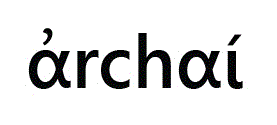Resumo em Português:
Resumo: Nas primeiras duas seções deste artigo, apresento alguns dos argumentos que os filósofos budistas indianos Nāgārjuna (ca. séculos II-III) e Vasubandhu (ca. séculos IV-V) usam para mostrar a insustentabilidade lógica dos fenômenos, respectivamente, do movimento e da existência de objetos externos/extramentais. A lógica desses argumentos é comparável à lógica que Zenão de Eleia utiliza nos seus paradoxos contra o movimento e a multiplicidade - e, de fato, no interior dos estudos budológicos contemporâneos, essa comparação já foi sugerida. Na terceira seção, entretanto, pretendo mostrar que os objetivos filosóficos mais imediatos desses três pensadores divergem e são inconciliáveis: enquanto Zenão critica o movimento e a multiplicidade para demonstrar a plausibilidade dos atributos da imobilidade e da univocidade do Ser parmenídico, os paradoxos de Nāgārjuna e Vasubandhu devem ser entendidos no âmbito de projetos filosóficos que, em continuidade com o ensinamento budiano do caminho do meio, pretendem ficar equidistantes das categorias do “ser” e do “não-ser”, evitando ambas. Finalmente, na quarta e última seção, defendo a tese de que os objetivos últimos dos Eleatas e aqueles dos dois filósofos budistas voltam a ser parecidos: Parmênides e o Buda, como também seus respectivos epígonos, buscam promover nos seus seguidores uma “revolução epistêmica” que consiste na passagem de uma visão ordinária da realidade a uma compreensão extraordinária ou suprema, coincidente com a realidade em si e, portanto, verdadeira em última análise.
Resumo em Inglês:
Abstract: In the first two sections of this paper, I present some of the arguments that the Buddhist Indian philosophers Nāgārjuna (second/third century) and Vasubandhu (fourth/fifth century) use to show the logical untenability of the phenomena of motion and of the existence of multiple external/extramental objects. The logic of these arguments seems to be quite comparable - and actually, within contemporary buddhological studies, it was sometimes compared - to the one that Zeno of Elea uses in his paradoxes against motion and multiplicity. However, in the third section, I try to show that the most immediate philosophical purposes of these three thinkers diverge and are irreconcilable. While Zeno criticizes motion and multiplicity in order to show the plausibility of the attributes of motionlessness and uniqueness of Parmenides’ Being, Nāgārjuna and Vasubandhu’s paradoxes should be understood within philosophical projects that, in tune with the Buddha’s teaching of the “middle way”, try to keep themselves equidistant from the categories of “being” and “non-being”, avoiding both. Finally, in the fourth and last section, I defend the thesis that the ultimate purposes of the Eleatics’ view and those of the two Buddhist philosophers are, once again, comparable. Both Parmenides and the Buddha, as well as their respective epigones, try to promote an “epistemic revolution”, in their followers, which consists in the shift from the ordinary vision of reality to an extraordinary or supreme understanding, coincident with reality in itself and, therefore, ultimately true.
